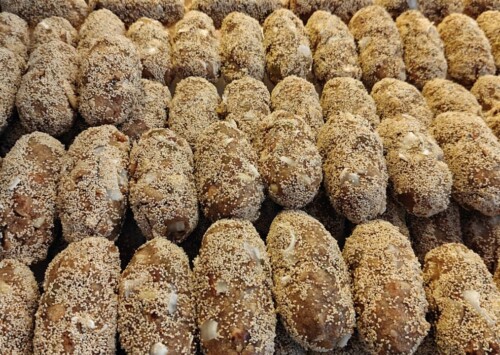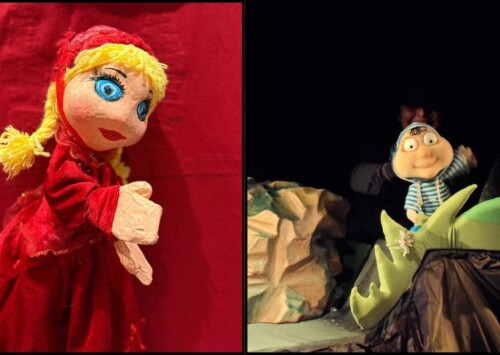Labubu doll frenzy sweeps India, sales spike in 2025
Collectibles fuel fashion statements and consumer concerns amid supply, cultural debate

The demand in India reflects a booming market where prices of Labubu dolls have surged dramatically (Photo: Veena Gosain)
India is witnessing an unprecedented surge in demand for the Labubu doll, turning it into one of the fastest-growing collectibles in the country. With sales skyrocketing across major cities and online platforms, the quirky, elf-like figure has captured the attention of collectors, youth, and gift buyers alike.

The demand in India reflects a booming market where prices of Labubu dolls have surged dramatically (Photo: Veena Gosain)
Over the past few months, markets across India have been invaded by Labubu dolls, a strange looking, toothy doll that has developed a strong fan base globally amongst those who like quirky collections for their living room display as also those trying to set fashion trends.
Across India, toy retailers, both offline and online, say they are having a tough time keeping up with the spiking demand.
“I spotted rising interest in Labubu dolls through Google trends and researched prices in Sadar Bazaar and online. After buying wholesale, I faced challenges selling due to limited buyer awareness, but through education and marketing, I secured B2B deals with major Gurgaon toy brands. In just one week since the start of July, I sold about 1,000 dolls using strategic research and hustle,” Veena Gosain, Co-founder of Gala Land, an online retail store, tells Media India Group.
The Labubu doll, characterised by its jagged teeth and elf-like features, has become a sensation in India, with collectors and casual buyers alike embracing its “ugly-cute” aesthetic. The dolls are now a common sight during festivals such as Rakhi and Diwali, gifted among siblings and friends as much a token of affection as a style statement.
“My customers are all kinds, some love collecting, some buy them for style or gifts, and others just think they are cute. It is cool how so many different people like them,” Gosain adds.
The demand in India reflects a booming market where prices of Labubu dolls have surged dramatically. Rare editions fetch high prices, with some limited sets selling for thousands of dollars. This growth is mirrored by a speculative secondary market where resellers capitalise on scarcity to charge multiples of the original price. Buyers often queue up for hours both outside physical stores and online shops to secure the doll.
However, not all enthusiasm is without caution.
“There is no doubt about the creative appeal of Labubu, but from my perspective, I feel we are witnessing the gamification of consumerism, an endless pursuit of status, rarity, and social media approval. Collectible culture itself is not new, but the scale and intensity I see within my friends and colleagues seem unprecedented,” Mayank Tanwar, a fashion student based in New Delhi, tells Media India Group.
“While it might be one thing for adults to enjoy collecting or trading, it is quite another matter to see children growing anxious about missing out,” says Tanwar.
However, some consumers say they find emotional connections to the dolls. Pop Mart, the Chinese company behind Labubu, has strategically used a “blind box” sales model, where buyers do not know which variant the doll inside will be. This element of surprise has stoked a “gold rush” mentality amongst the buyers.
“My first Labubu was a birthday gift from my older sister. Since then, I have been hooked. Every time I unbox a new one, there is a rush, will it be the special edition or a rare variant? It is honestly addictive, but more than that, it is something we do as a family now. Even my father wants to know what’s inside,” Manvi Singh, an air hostess in Gurgaon, tells Media India Group.
The explosion of Labubu’s popularity has led to rise of counterfeit Labubu dolls, known as ‘Lafufu’, which in turn has prompted increased vigilance by sellers and buyers alike.
Authorities worldwide have cracked down on fake merchandise, emphasising safety risks especially for children. Indian collectors have to be cautious as counterfeit products flood both physical and online markets.
The popularity of Labubu is not limited to India. PopMart has seen its revenues from Labubu doll sales triple to USD 1.8 billion in 2024, fuelling Pop Mart’s strong financial performance and a market capitalisation exceeding USD 44 billion. For PopMart, the brand’s international spread is significant, with nearly 40 pc of revenues coming from outside China, including India, the United States, and Europe.
Internationally, Labubu dolls have also been propelled by celebrity endorsements from Kim Kardashian, Rihanna and Lisa of K-pop group Blackpink. This global aspect adds to the allure and ambition of collectors worldwide, including in India, where the doll has woven itself into the social fabric. Brand collaborations and appearances in fashion videos have broadened its cultural footprint.









